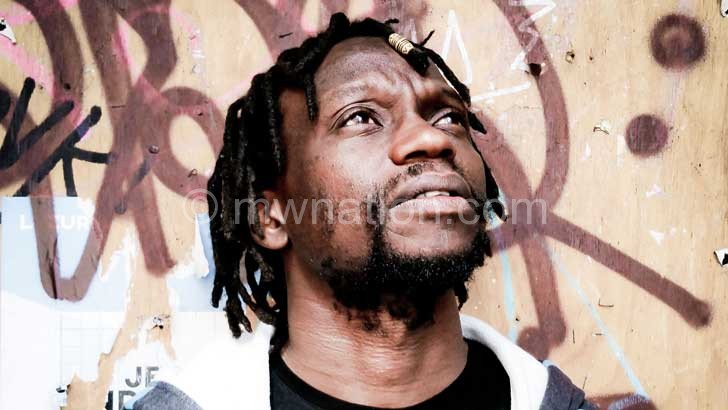Selling Malawian music abroad
One of Malawi’s best music exports Street Rat, real name David Luhanga has just established a band in Scotland where he now stays. With his new band, he plans to tour Europe and make a name for himself while selling Malawi music in general. In this interview, which starts with his background in music, our Arts and Entertainment Editor EDITH GONDWE gets an insight of his musical journey.

Q
: How old were you when you started making music?
A
: I don’t exactly remember how old I was, but it all started when I was in primary school somewhere between Standard Four and Five. I started composing simple rhyming words in a rap style simply for fun.
Q
: So how was this talent nurtured?
A
: As we know in Malawi art is not well supported by both family and the education system. But for me I did not have a problem because my father loved music. I grew up listening and imitating music from my father’s vast African music collection.
I trained myself to understand the behaviour of music by using dubs [instrumental reggae music] to compose and practice my own music.
Q
: So what happened for you to turn professional?
A
: After finishing my MSCE [Malawi School Certificate of Education], I found my love for music growing stronger than I expected. I started doing rap and ragga competitions in those days.
At last I got tired of using dubs and I wanted to do the real thing; to play with a band. In 2000 I joined a local [Mzuzu] band called Ghetto Souls; I became one of the leading vocalists doing my own compositions. In the year 2002 we joined the Music Crossroads Competition but we did not make it to the inter-regional festival due to lack of resources and preparation.
The band got shaken after that, some players left for greener pastures because they thought there was no future in what we were doing. In 2003 I and the remaining players took it to another level and managed to bring in some new blood, I changed the name to Soul of the Ghetto but still things were not very well without resources.
This time we were doing African music from reggae because I thought we were running away from who we really are. We participated in the Kuche-Kuche Music Awards but things didn’t turn up ok for us. So some players got discouraged again, I lost some key players in the band. I couldn’t give up because music became part of me and until now I believe that music chose me.
In 2005 I recruited new players and this time I brought in a saxophone player Gerard Esposito, who used to run Mzoozoozoo[a hospitality facility], he had a small drum and some guitars which was a great opportunity to master our skills. We won the best acoustic song at the Kuche-Kuche Music Awards.
In 2006, I changed the name to Body Mind and Soul because some founders of Ghetto Souls were jealous. The same year, we were selected as the best band at Music Crossroads inter-regional festival in Zimbabwe beating Zimbabwe, Zambia, Tanzania and Mozambique participants. We toured Europe in 2008. After the tour that’s when I got settled as a professional musician with my own resources.
Q
: Have you recorded albums to your name? If yes what are those albums?
A
: In 2016, I released a reggae album titled Born in the ghetto under Spare Dog Records. I did another solo project here. There are plans to do Rhythms of My heart again with my new band Tilitonse, end of next year. I now have one unreleased album which I recorded at Music Crossroads in Lilongwe, I am not happy with the mixing so I have to mix it again. It’s called Ndikamanga Pandekha.
Q
: Tell me about the decision to go to Europe?
A
: The decision to come to Europe was not easy; it took me several years to make a final decision. It was painful to leave my musical family Body Mind and Soul and my family behind. But I had also to think about opportunities I could get here as a professional musician. As a family man I had to make things easier for my wife and my daughter. The biggest challenge was that I couldn’t see any greater future in Malawi music as a musician from the North.
Q
: Now that you have set up a band in Europe, how do you intend to use that to sell Malawi music and culture?
A
: Firstly, as you know up to now we don’t have one style of music that one can recognise as Malawi music. In my music I always include cultural elements like, vimbuza, malipenga, visekese and many more and blend them with world music. When people hear that they always want to know more about the originality of these rhythms; whenever I perform I have to remind my audience that I am from Malawi and not Mali, they really get confused especially when I sing in Kyangonde.
Q
: How do you find the music market over there in Europe?
A
: The market is always challenging but if you are good there’s no way that you will be ignored. There’s always a chance if you bring in something new and unique elements. Several of my tracks have been played on BBC world music but they are not even released yet, which is a good start for me. I now have to finish what I started with the Music Crossroads, to spread my art of music all over the world. n





